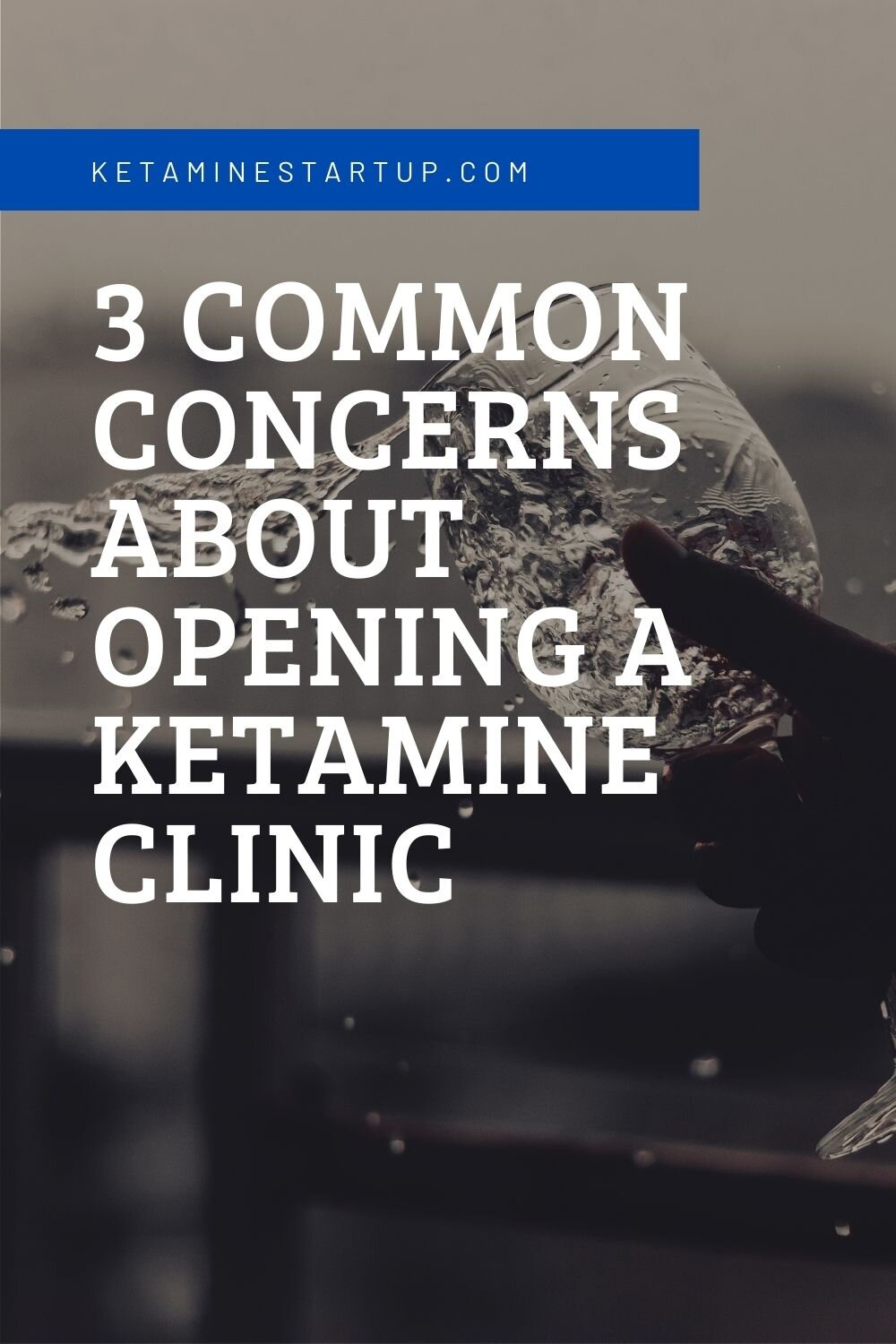3 Common Concerns About Opening A Ketamine Clinic
Since we started teaching our colleagues how to start their own ketamine clinic, we have gotten a lot of interesting questions. Once in a while, we get a doctor letting us know about their concerns about ketamine, ketamine clinics, or the entire ketamine psychedelics industry. In this blog post, we are going to go over three common concerns doctors have when considering opening a ketamine clinic and explain why these shouldn’t be concerns at all!
The medical space is slow to change and hasn’t fully accepted ketamine as a legitimate treatment yet.
Concern #1: Ketamine Treatments Are Not Recognized As “Completely” Legitimate
Most new approaches in medicine are initially seen as illegitimate and medicine can be very resistant to change.
Our medical practices today comprise of changes that have been rejected at first before slowly being accepted over time.
Take handwashing for example. Today, handwashing is standard of care for everyone in the medical field. But that wasn’t always the case. In the late 18th and 19th centuries, handwashing wasn’t observed by physicians after performing autopsies! This caused an epidemic of puerperal fever (AKA childbed fever), which affected women 3 days after childbirth. And it was mostly caused by physicians who didn’t wash their hands after performing autopsies and before helping mothers during childbirth.
In this day and age, imagine not washing your hands after performing autopsies! Yikes!
Surprisingly, despite evidence that washing hands has indeed lessened the number of puerperal fever cases, many doctors still seemed to reject the idea. It took time before handwashing became accepted in the medical space.
So despite the negative views on ketamine and its legitimacy today, we believe that because it is so effective, eventually people will come to accept this treatment.
All we can do is practice evidence-based medicine. There are plenty of studies, including double-blinded ones, that have been conducted which prove the effectiveness of ketamine in treating depression.
Check out our Top 10 Ketamine Articles To Get You Started blog, which has the scientific articles to get you started practicing in this way.
Ketamine treatments haven’t been fully recognized by health insurance companies yet. But things are changing.
Concern #2: Ketamine Treatments Are Not Covered By Health Insurance
Most insurances don't cover IV ketamine treatments. The fact that ketamine infusions for the treatment of mood disorders are not yet FDA approved makes things especially challenging. This results in insurance companies arguing that these treatments are still too experimental and therefore, shouldn’t be covered.
But things are changing.
For example, Massachusetts Blue Shield/Blue Cross is starting to cover ketamine infusions for depression. Most likely because it's cheaper & more effective than Spravato (nasal esketamine). Unfortunately here in the United States, healthcare is a big business. Fortunately for us, that means insurance companies like to follow economics.
If there is a demand for a service, then that means that there is a demand for coverage of a service. That means insurance companies will be incentivized to investigate and see if they should cover it. Plus if a new therapy is more effective in treating a disease (which means cheaper in the long run), then they would rather pay for that instead of an older, more costly one.
The ketamine infusion industry is still in its infancy. We predict it is only a matter of time before insurance coverage becomes common.
Explore this topic more at our blog post - Do Insurances Reimburse Ketamine Infusions?
Many people are concerned about the adverse effects of ketamine from repeated usage, but the evidence is showing they shouldn’t worry.
Concern #3: There Can Be Adverse Effects From Repeat Ketamine Usage
Much of the information available about adverse effects of chronic usage come from studying those who abuse ketamine. With ketamine abuse, the amount of ketamine administered and frequency of use is significantly greater than that given in a ketamine clinic. The more ketamine a person receives at a higher frequency results in increased risk of adverse effects. These effects include interstitial cystitis or addiction.
There are ways to mitigate side effects, such as giving smaller amounts and controlling the frequency. IV ketamine, with its 100% bioavailability, gives the best chance of using the least amount of ketamine. Providing ketamine in the clinical setting only, i.e. not prescribing intranasal ketamine for self administration, limits frequency and reduces the chance of addiction.
A recent study on the Safety of Repeated Administration of Parenteral Ketamine for Depression concluded from their survey that six or more repeated ketamine treatments administered to individuals for depression were reasonably safe and had a low rate of adverse effects.
Another study on Acute and Longer-Term Outcomes Using Ketamine as a Clinical Treatment at the Yale Psychiatric Hospital also found that the long-term treatment of ketamine infusions in patients with depression had no long-term adverse effects.
Your Concerns Shouldn’t Be Concerns At All
There is still much skepticism going on about ketamine infusions. This may be one of the reasons holding you back from starting your own ketamine clinic. But the medical space, albeit slowly, is starting to accept ketamine as a treatment for depression and mood disorders.
With multiple studies to back you up, you don’t have to be concerned about whether ketamine treatments will become in demand or not. It will only be a matter of time before insurance companies cover this treatment and more people will want to start their own ketamine clinic in order to meet the growing demand.
This is why we were never fazed when we decided to start our own ketamine clinic. We trust in the process and know that things will only get better from here.













Texas proposes mandatory ketamine clinic registration, onsite physician requirements, and home-use ban. What it means for your practice and the industry.